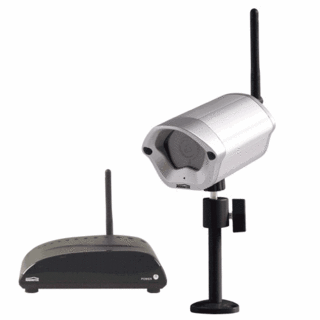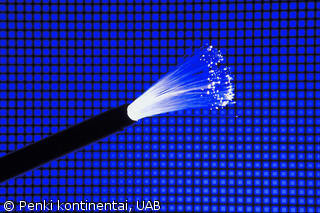Estonian officials announced plans last week to move the nation to electronic voting in time for the country's 2003 general election.
Published:
5 April 2001 y., Thursday
The shift is expected to boost voter participation among the young in a country that has voraciously adopted internet technology and mobile communications.
Despite a per capita GDP of only $3,778, between 21% and 40% of the population is online. Half of all secondary schools in the country are now wired to the internet. 95% of Estonian public employees have a computerized workplace. At home, 19% of the population owns a computer, with approximately 53% of them internet-connected.
As is true throughout emerging internet markets, the internet is used heavily by young Estonians. According to surveys by BMF Gallup Media, more than half of teens in the country (15 to 19 years old) surf the web. For most Estonians, work is the primary place of access: 74% of the population reports using the internet during the workday, and only 9% report use it during the weekend.
Estonian governmental policies have stimulated internet adoption and the diffusion of information technology throughout the country. In February 2000, the Estonian parliament approved a proposal to guarantee internet access as a nationwide constitutional right. The government has also established free internet access centers (located along the country's major highways) to ensure equitable access to the technology. It has also initiated the innovative "Tiger Leap" program which ensures that every Estonian school is wired to the Internet.
Virtually the entire country has mobile phone coverage, with three operators providing GSM services. Today about 29 percent of the population uses GSM services. Estonian mobile operators have been among the first in the world to introduce WAP services to their customers.
The country has a high mobile phone penetration rate for the Baltic region. According to Estonian Telecom, 36.8% of the population subscribes to mobile phone service, a substantial increase from 24.9% in 1999. As handsets that allow internet connections are purchased by Estonians, the number of people accessing the internet through their mobile phone will soar.
Šaltinis:
emarketer.com
Copying, publishing, announcing any information from the News.lt portal without written permission of News.lt editorial office is prohibited.
The most popular articles
Software company announced new structure_ of it_s business.
more »
 Just a few weeks ago, the world's tiniest video camera was as small as a grain of rice. Today, the world's NanoEst camera is even smaller.
more »
Just a few weeks ago, the world's tiniest video camera was as small as a grain of rice. Today, the world's NanoEst camera is even smaller.
more »
 During the experiment two research groups managed to overcome a symbolic 100 TB/s optical fiber data transmission speed limit.
more »
During the experiment two research groups managed to overcome a symbolic 100 TB/s optical fiber data transmission speed limit.
more »
 Apple’s long–awaited online storage service for iTunes could be named iCloud, if only rumours are to be believed.
more »
Apple’s long–awaited online storage service for iTunes could be named iCloud, if only rumours are to be believed.
more »
 The founders of video-sharing site YouTube have bought bookmarking service Delicious from Yahoo.
more »
The founders of video-sharing site YouTube have bought bookmarking service Delicious from Yahoo.
more »
 The successful raid by hackers on Sony’s PlayStation Network is already being ranked among the biggest data thefts of all time.
more »
The successful raid by hackers on Sony’s PlayStation Network is already being ranked among the biggest data thefts of all time.
more »
 Apple has denied that its iPhones and 3G iPads have been secretly recording their owners' movements.
more »
Apple has denied that its iPhones and 3G iPads have been secretly recording their owners' movements.
more »
 Customers who have waited nearly 10 months for the white version of the iPhone 4 won’t have to wait much longer. The Great White iPhone 4 is finally here.
more »
Customers who have waited nearly 10 months for the white version of the iPhone 4 won’t have to wait much longer. The Great White iPhone 4 is finally here.
more »
 Researchers at Georgia Tech University are teaching a robot the basics of dialogue. Named "Simon", the robot has already been taught how to attract a person's attention but eventually, it's hoped he'll be able to interact and converse with humans in daily life.
more »
Researchers at Georgia Tech University are teaching a robot the basics of dialogue. Named "Simon", the robot has already been taught how to attract a person's attention but eventually, it's hoped he'll be able to interact and converse with humans in daily life.
more »
 3D? Terribly lame when it's tossed into devices as a bullet point feature. Trimensional for iPhone takes a picture of your face and maps your mug in a 3D model.
more »
3D? Terribly lame when it's tossed into devices as a bullet point feature. Trimensional for iPhone takes a picture of your face and maps your mug in a 3D model.
more »
 The European Union is to investigate whether internet service providers (ISPs) are providing fair access to online services.
more »
The European Union is to investigate whether internet service providers (ISPs) are providing fair access to online services.
more »